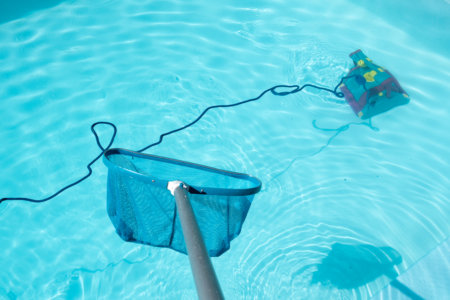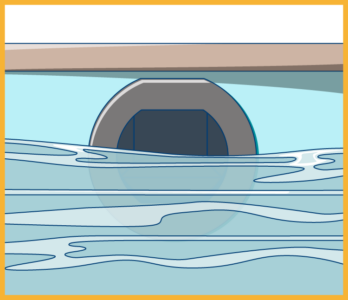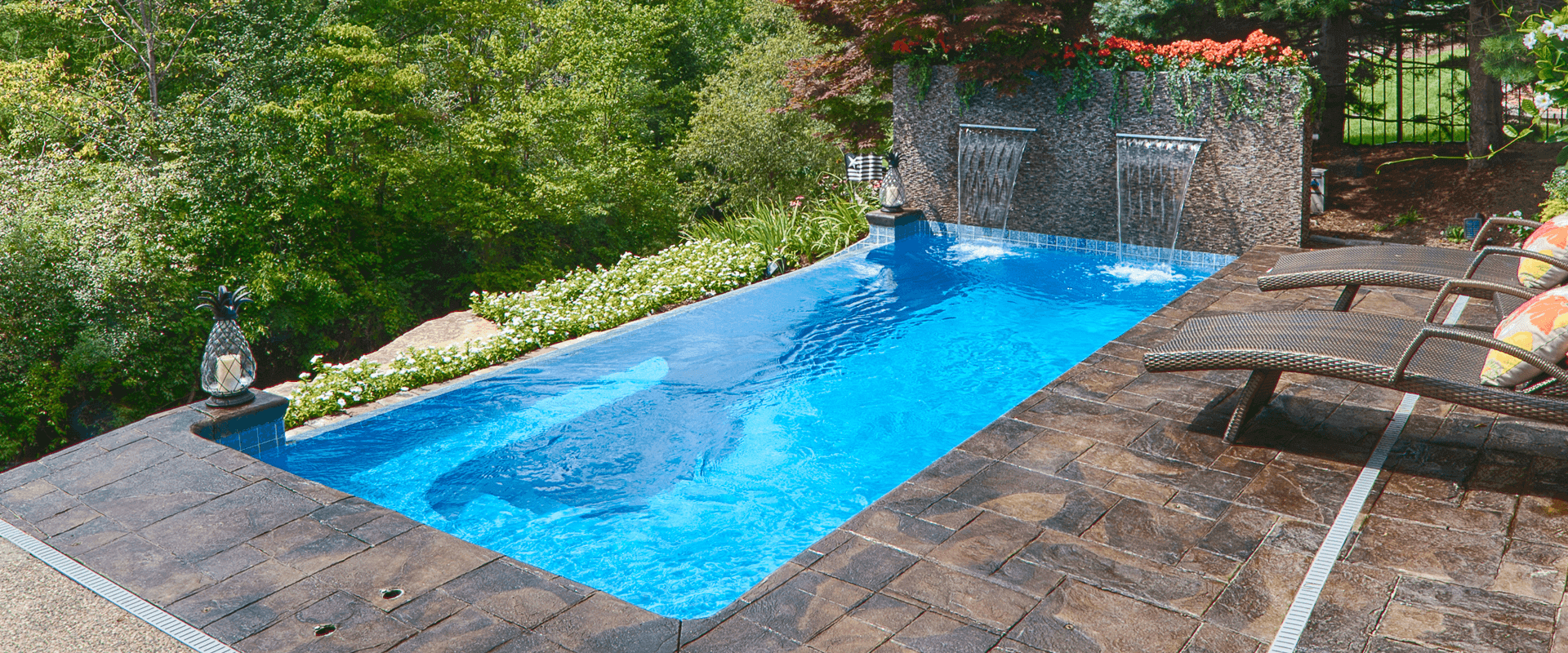877-929-7665
DIY or Pool Maintenance Pro? Caring for Your Pool Takes a Little of Both
Whether you’re a do-it-yourself type or a big believer in delegation, you are ultimately responsible for your pool. And no one will care more about your investment than you. Factors such as your inground pool shape and type can affect pool maintenance and your decision to take on certain tasks. You can handle several routine tasks, but some require pool professionals. Let’s explore what you need to know about maintaining your inground pool.
Regularly Caring for Surfaces
Consistently cleaning the walls and floor are relatively easy tasks that should be completed as needed. You should plan on doing some of this yourself, even if you hire a weekly pool service.

- Brushing the walls and surface prevents algae and bacteria from adhering to the surface and forming biofilms. The swimming experience is more enjoyable and safer, reducing the risk of slipping or stepping on debris.
- Dirt and debris may settle in areas that have less circulation. Brushing surfaces allows it to get to the skimmer.
- By removing debris and preventing clogging, vacuuming helps maintain the efficiency of the pool filter and pump system, prolonging their lifespan.
- A skimmer net can get any leaves or other debris that may fall into your pool before they settle to the bottom or fill the skimmer basket.
A robotic pool cleaner and brush ensure debris, dirt, and algae don’t settle and build up in the pool. A soft brush or cloth is effective for wiping away organic material without damaging the surface of a vinyl or fiberglass pool. A stainless steel brush is more effective and safe on a concrete pool.
Maintaining Proper Water Level
 Regardless of your pool type, maintaining the correct water level is a key aspect of pool care, ensuring a longer lifespan for the pool structure, preventing damage, and providing a safer and more enjoyable swimming environment.
Regardless of your pool type, maintaining the correct water level is a key aspect of pool care, ensuring a longer lifespan for the pool structure, preventing damage, and providing a safer and more enjoyable swimming environment.
- Protects Pool Equipment: Proper water levels prevent pumps and skimmers from running dry, which can cause overheating, cavitation, or burnout. Maintaining the correct level avoids costly equipment repairs and replacements.
- Optimizes Water Circulation: The appropriate water level ensures skimming function and efficient circulation
- Improves Safety: Maintaining the correct water level reduces the risk of accidents, such as slipping on a wet deck due to splashing from overfilled pools.
Opening and Closing Your Pool
We recommend bringing in the pros for this one. Correctly opening and winterizing your pool is essential to prevent damage and ensure your pool starts the season off right and finishes in good shape for next year.
Often discovered during pool opening and closing, electrical issues, missing, broken, or cracked drain covers, and equipment issues are best left to those professionals with the proper tools and experience to service them and keep warranties intact.
Routinely performing other pool maintenance tasks, keeping your pool clean, and doing checks will help prepare your pool for closing, ensuring a smooth process with fewer hiccups in the future and allowing you to save time and money.
Prioritizing Water Balance
Whether you do it yourself or hire a pro, become as much of an expert as possible on your pool’s water chemistry. The more you educate yourself, the easier it will be to find a pool professional you can trust with your maintenance.
Improperly balanced pool water can lead to various types of damage to pool surfaces and structures, depending on the type of pool—vinyl, fiberglass, or gunite. Each type has specific vulnerabilities when exposed to unbalanced water chemistry. Here’s an overview of the potential damage for each:
Vinyl Pools
- Fading and Discoloration: High chlorine levels or low pH can cause the vinyl liner to fade or become discolored over time.
- Wrinkling and Stretching: High alkalinity or calcium hardness can cause the vinyl liner to wrinkle or stretch, leading to an uneven pool surface.
- Brittleness and Cracking: Low pH can cause vinyl liners to become brittle and more prone to cracking and tearing, which may lead to costly repairs or replacement.
- Algae Growth: Improper sanitizer levels (e.g., chlorine or bromine) can encourage algae growth, making the surface slippery and eventually staining the liner.
Gunite (Concrete) Pools
- Surface Etching and Scaling: Low pH or low calcium hardness can lead to etching, where the plaster or surface material of the pool is worn away, creating a rough and pitted surface. Conversely, high pH and high calcium hardness can cause scaling, where calcium deposits form on the surface.
- Staining: Imbalanced water chemistry, especially improper metal ion levels, can lead to staining. Metal ions like iron, copper, and manganese can cause stains of different colors (brown, green, black) on the plaster.
- Cracking: Prolonged exposure to highly acidic or highly alkaline water can weaken the structural integrity of the plaster, causing it to crack or delaminate.
- Algae Growth: Improper sanitizer levels can result in algae growth, leading to green or black spots on the pool surface, making it slippery and unsanitary.
Fiberglass Pools
- Gel Coat Damage: Imbalanced pH, alkalinity, or calcium hardness can cause the gel coat of fiberglass pools to deteriorate, resulting in a dull or chalky appearance.
- Staining and Discoloration: Low pH or improper sanitizer levels can cause metal ions (like copper or iron) to stain the surface, leading to unsightly yellow, brown, or green marks.
General Consequences for All Pool Types
- Corrosion of Equipment: Unbalanced water, especially with low pH or high chlorine levels, can corrode metal parts in pool equipment like ladders, pumps, and heaters.
- Increased Maintenance Costs: Damage from unbalanced water often requires expensive repairs, replacements, or resurfacing, increasing overall maintenance costs.
- Poor Swimmer Comfort: Improperly balanced water can cause eye irritation, skin discomfort, and an unpleasant swimming experience.
- Damage to Pool Surfaces: Maintaining the appropriate water chemistry balance helps protect pool surfaces and swimmers’ health in all pool types. Regular testing and adjustments are key to preventing these types of damage.
Each pool type requires maintenance tasks to keep them in good condition. Be sure to take the time to read your pool manufacturer’s owner’s manual along with any equipment manuals that may come along with your pool project to have a complete understanding of these tasks. Learn as much as you can about pool maintenance and enlist the help of a pool maintenance pro near you to bridge the gap between what you can and can’t do yourself. Then, the only thing left to do is sit back, enjoy your crystal clear water … and take a swim!
